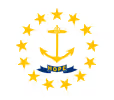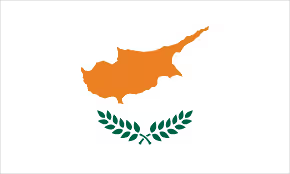Debt Collection Laws, Compliance and Consumer Protection
Introduction - Laws and regulations in Debt Collection
Life is filled with financial commitments, from paying off credit cards to servicing loans. But what happens when those financial obligations aren't met? This is where debt collection comes in.
In simple terms, debt collection is the process of pursuing payments of debts that are owed by individuals or businesses. It's a necessary aspect of credit markets as it ensures that lenders can recoup their investments, allowing them to continue to offer credit to others.
When a debtor fails to pay, creditors often employ a debt collection agency. These agencies, acting on behalf of the creditors, reach out to the debtor in various ways - letters, phone calls, emails, and sometimes even personal visits - all in a bid to recover what's owed.
Debt collection is much more than a cat-and-mouse chase, however. It's a regulated industry governed by strict rules to protect debtors from unfair practices.
For businesses navigating legal complexities across borders, our international debt collection platform ensures compliant, risk-free recovery in 183 countries.
The Importance of Regulation in Debt Collection
Imagine being harassed with daily phone calls, or being threatened for a debt you don't owe. Unpleasant, right? That's why regulation in debt collection is vital.
Regulations ensure that debt collection activities are conducted in a lawful, ethical, and non-abusive manner. They stipulate what debt collectors can and cannot do while attempting to recover a debt. For instance, there are laws about when and how often a debt collector can contact a debtor, what they can discuss with third parties, and how they can deal with disputes over the amount owed.
These laws act as a shield, protecting consumers from predatory practices while allowing legitimate debt recovery efforts to take place.
Purpose of the Guide
With the complicated web of laws and terms surrounding debt collection, it's easy for anyone to get confused or overwhelmed. The purpose of this guide is to untangle that web and present you with a clear understanding of debt collection practices, laws, and compliance, both in the United States and globally.
We'll delve into the key regulations, provide an overview of the debt collection process, explore consumer rights and protections, and even share practical advice on dealing with debt collectors. Whether you're a debtor seeking to understand your rights, or a professional in the industry, this guide aims to serve as a comprehensive resource.
Who Should Read This Guide
While the primary audience of this guide is consumers dealing with debt collection agencies (debtors), it also holds significant value for a broader audience.
If you've ever borrowed money or used credit, or if you plan to, understanding the intricacies of debt collection can help you navigate potential challenges. This knowledge can empower you to deal effectively with debt collectors, and more importantly, to protect your rights.
Moreover, for professionals working in financial services, debt collection agencies, law firms, or consumer advocacy, this guide offers a comprehensive examination of the laws and practices surrounding debt collection. It's a ready reference that can help ensure your actions are both effective and compliant with the law.
In short, if the world of debt and credit touches your life in any way, this guide is for you.
We invite you to continue this journey with us, as we delve deeper into the fascinating and vital world of debt collection, compliance, and consumer protection.
Understanding the Basics of Debt Collection
In financial terms, debt refers to the money borrowed by one party from another. It's a tool used by individuals and businesses alike for making large purchases that they could not afford under ordinary circumstances. Now, not all debt is created equal. Here are the common types:
- Secured Debt: This is tied to an asset, like a car or a house. If you can't repay the debt, the lender can take the asset. Examples include mortgages and car loans.
- Unsecured Debt: This type of debt isn't linked to any specific assets. The lender can't automatically take property if the debtor defaults on repayment. Credit card debt is a common example of unsecured debt.
- Revolving Debt: This is a credit line that allows you to borrow up to a maximum limit and either pay off the balance or carry it over (revolve it) each month. A credit card is a form of revolving debt.
- Installment Debt: This is a loan with a set number of scheduled payments spread over time. Examples include car loans and home mortgages.
Role of Creditors and Debtors
In the world of debt collection, there are two main players: the creditor and the debtor.
A creditor is an individual, company, or institution that lends money, expecting it to be repaid at a later date, often with interest. Creditors could be banks, credit card companies, or even private individuals lending money to a friend or family member.
A debtor, on the other hand, is the person or entity that owes money to the creditor. The debtor has the responsibility to meet the obligations of repaying the debt according to the terms and conditions agreed upon.
Overview of Debt Collection Process
Debt collection typically kicks off when a debt remains unpaid beyond the due date. Here's a basic outline of the process:
- Late Payment: Once a payment becomes overdue, the creditor will attempt to contact the debtor, typically through reminders via mail, email, or phone calls.
- Default: If the debtor doesn't respond to these reminders or fails to set up a payment arrangement, the debt may be declared in default.
- Debt Collection Agency Involvement: Post default, the creditor might engage a debt collection agency or sell the debt to a debt buyer. The agency or buyer will then attempt to collect the debt from the debtor.
- Legal Action: If the debtor still doesn't pay and the debt is significant, the creditor or collection agency may take legal action to recover the debt. This could potentially lead to wage garnishment or seizure of assets.
Understanding these roles and processes can empower you to navigate the debt collection process with clarity and confidence, ensuring you know your responsibilities and rights at each stage.
Debt Collection Laws and Compliance in the United States
The debt collection landscape in the United States is a complex tapestry woven with various federal and state laws. The essence of these laws is to strike a balance between ensuring debtors repay their debts, and protecting consumers from undue harassment or deceptive practices. These laws provide a framework that debt collectors must follow and offer recourse to consumers who experience unfair practices.
At the federal level, the main regulatory body overseeing debt collection practices is the Consumer Financial Protection Bureau (CFPB), along with the Federal Trade Commission (FTC). They administer a host of federal laws, including the Fair Debt Collection Practices Act (FDCPA), the Fair Credit Reporting Act (FCRA), the Telephone Consumer Protection Act (TCPA), and many others.
The Fair Debt Collection Practices Act (FDCPA) is one of the most influential laws in this landscape. It protects consumers from abusive, unfair, or deceptive practices by debt collectors and provides an avenue for consumers to dispute and obtain validation of debt information.
The Fair Credit Reporting Act (FCRA) primarily regulates the collection, dissemination, and use of consumer information, including consumer credit information, by credit bureaus.
The Telephone Consumer Protection Act (TCPA) restricts telemarketing calls and the use of automated telephone equipment. It was developed in response to consumer concerns about the increasing number of unsolicited telemarketing calls and faxes they were receiving.
Apart from these, there are several other federal acts that we'll explore in detail in subsequent sections.
In addition to federal laws, each state may also have its own set of laws governing debt collection.
For instance, California has the California Fair Debt Collection Practices Act, and Texas has the Texas Debt Collection Act. These state laws often complement the federal laws but can offer additional protections.
In navigating the U.S. debt collection landscape, it's crucial to understand these regulations. They provide the legal boundaries within which debt collectors must operate and offer protections and options for consumers who find themselves the target of excessive or unscrupulous debt collection practices. In the next sections, we'll delve deeper into each of these laws, their key provisions, and what they mean for you, the consumer. Stay tuned!
Fair Debt Collection Practices Act (FDCPA)
The Fair Debt Collection Practices Act (FDCPA) is a landmark federal law in the United States, enacted in 1977. The FDCPA aims to eliminate abusive practices in the collection of consumer debts, to promote fair debt collection, and to provide consumers with an avenue for disputing and obtaining validation of debt information.
The law regulates the conduct of third-party debt collectors—those who are collecting on behalf of another entity. These can be collection agencies, lawyers who collect debts on a regular basis, and companies that buy delinquent debts and try to collect them.
Key Provisions
- Communication: A debt collector may not contact you at inconvenient times or places, such as before 8 in the morning or after 9 at night, unless you agree to it. They cannot contact you at work if they're told (orally or in writing) that you're not allowed to get calls there.
- Harassment or Abuse: Debt collectors may not harass, oppress, or abuse any person in connection with the collection of a debt. For example, they cannot use threats of violence or harm, publish a list of names of people who refuse to pay their debts, or use obscene or profane language.
- False Statements: Debt collectors may not lie when collecting debts, such as falsely represent the amount you owe or claim to be an attorney if they’re not.
- Validation of Debts: Within five days after initially contacting you, the debt collector must send you a written notice telling you the amount of money you owe, the name of the creditor to whom you owe the money, and what action to take if you believe you do not owe the money.
- Disputing the Debt: If you send the debt collector a letter stating that you don’t owe any or part of the money within 30 days after you receive the validation notice, or asking for the name and address of the original creditor, the collector must stop contacting you.
Compliance Guidelines for Businesses
- Training: All employees involved in debt collection should receive thorough training on the provisions of the FDCPA. They should understand what practices are allowed and prohibited under the law.
- Policies and Procedures: Establish clear, written policies and procedures to ensure compliance with the FDCPA. This can include templates for communication, procedures for validating and disputing debts, and protocols for handling complaints.
- Legal Counsel: Regularly consult with legal counsel to stay updated with any changes to the FDCPA or state laws and understand how they apply to your business.
- Record Keeping: Keep detailed records of all communication and transactions related to debt collection. These can be essential in proving compliance in case of disputes or lawsuits.
Fair Credit Billing Act (FCBA)
The Fair Credit Billing Act (FCBA), passed in 1974 as an amendment to the Truth in Lending Act, is designed to protect consumers from unfair billing practices. This law provides guidelines for both consumers and creditors to manage disputes regarding billing errors on credit accounts such as credit cards, store charge cards, and certain revolving charge accounts.
Key Provisions
- Billing Error Rights: The FCBA offers protection to consumers who dispute billing errors. These errors could range from charges for goods or services not received, to computational or mathematical errors, to charges for which the consumer asks for an explanation or proof of purchase.
- Dispute Handling: Consumers have the right to dispute billing errors by sending a written notice to the creditor. The creditor must acknowledge receipt of the complaint within 30 days and must resolve the dispute within two billing cycles or 90 days, whichever is sooner.
- Protection from Credit Damage: During the dispute process, the creditor may not report the account as delinquent, or restrict or close the account because the consumer has disputed a billing error.
Compliance Guidelines for Businesses:
- Clear Billing Statements: Provide clear, detailed, and accurate billing statements. This includes clearly identifying each charge, the entity that charged it, and the date.
- Efficient Dispute Handling: Establish a robust system for managing billing disputes, including written procedures for receiving, acknowledging, and resolving disputes within the timeframes stipulated by the FCBA.
- Staff Training: Train customer service and billing personnel to understand the rights of consumers under the FCBA and how to handle billing disputes in accordance with the law.
- Prompt Correction of Errors: Once a billing error is confirmed, promptly correct it. This includes crediting the consumer's account and removing all finance charges, late fees, or other charges related to the error.
- Legal Counsel: Regularly consult with legal counsel to ensure compliance with the FCBA and stay updated with any changes to the law.
Fair Credit Reporting Act (FCRA)
The Fair Credit Reporting Act (FCRA) is a federal law enacted in the United States in 1970. It regulates the collection, dissemination, and use of consumer credit information. The FCRA promotes the accuracy, fairness, and privacy of consumer information contained in the files of consumer reporting agencies.
Key Provisions:
- Accuracy of Information: The FCRA requires that credit reporting agencies maintain accurate information about consumers.
- Consumer Access to Information: Consumers have the right to know what information is in their credit report, and they can request a free report annually.
- Dispute Mechanism: Consumers have the right to dispute inaccurate information in their credit reports. Credit reporting agencies are obliged to investigate the items in question, usually within 30 days.
- Limited Access: Consumer reporting agencies may not provide consumer reports to anyone who lacks a permissible purpose, such as credit, employment, or insurance transactions initiated by the consumer.
- Privacy of Information: Consumer reporting agencies may not report outdated negative information, generally anything over seven years old or bankruptcies over ten years old.
Compliance Guidelines for Businesses:
- Permissible Purpose: Only request a consumer's credit report from a credit reporting agency if you have a permissible purpose.
- Notification: Notify consumers promptly if you take an "adverse action" (such as denying an application for credit, insurance, or employment) based on information contained in a consumer credit report. The notice must include the name, address, and phone number of the agency that supplied the consumer report.
- Disposal of Consumer Report Information: Dispose of consumer reports and any information derived from consumer reports in a safe and acceptable manner.
- Investigations of Disputed Information: Businesses that provide information to consumer reporting agencies have obligations to investigate when they receive a notice of dispute from a credit reporting agency.
- Accurate Information Reporting: Furnishers of information to consumer reporting agencies must provide accurate information.
Equal Credit Opportunity Act (ECOA)
The Equal Credit Opportunity Act (ECOA), passed in 1974, is a federal law that prohibits credit discrimination based on race, color, religion, national origin, sex, marital status, age, or because someone receives public assistance. The law ensures that all consumers are given an equal chance to obtain credit. It's not about guaranteeing equal outcomes but rather equal opportunities.
Key Provisions:
- Non-Discriminatory Lending: A creditor cannot refuse to extend credit based on the protected classes mentioned above.
- Equal Terms and Conditions: If the credit is extended, the creditor cannot set different terms or conditions, like higher interest rates or fees, based on the borrower's protected status.
- Consideration of Public Assistance Income: Creditors must consider public assistance income in the same way as other income when evaluating creditworthiness.
- Spousal Guarantors: A creditor cannot require a spouse to co-sign unless the applicant alone does not meet the creditworthiness criteria.
- Adverse Action Notification: If credit is denied or terminated, the creditor must provide a notice explaining the specific reasons for the action or how the applicant can request this information.
Compliance Guidelines for Businesses:
- No Discrimination: Do not discriminate against applicants based on any protected characteristics.
- Inform about Credit Decisions: Notify applicants of your credit decision as soon as possible. For businesses, this must be within 30 days of receiving a completed application.
- Explain Rejections: If you reject an applicant, you must provide an adverse action notice that explains the specific reasons for the decision or informs them they have the right to request this information.
- Retain Records: Keep records of applications for 25 months (2 years and 1 month) after notifying the applicant of your credit decision.
- Collect Demographic Information: If you are a business that extends credit, collect and report demographic information about your applicants.
- Train Staff: Ensure your staff is adequately trained on ECOA requirements to prevent violations.
Truth in Lending Act (TILA)
The Truth in Lending Act (TILA), enacted in 1968, was designed to promote informed use of consumer credit by requiring disclosures about terms and costs. Essentially, TILA aims to provide consumers with a clear understanding of what they're getting into before they sign a credit agreement.
Key Provisions:
- Transparent Terms: Lenders are required to disclose essential terms such as the annual percentage rate (APR), the method of determining the finance charge, and the balance upon which the finance charge is based.
- Right to Rescind: For certain types of credit transactions, consumers have a right of rescission, allowing them to cancel the agreement within three business days.
- Advertising Disclosures: When lenders advertise credit terms, they must adhere to clear and consistent standards for disclosure of terms.
- Credit Card Protections: TILA also offers significant protections for credit card users, such as limiting liability for unauthorized use, providing procedures for resolving billing errors, and regulating the structure and timing of payments.
Compliance Guidelines for Businesses:
- Provide Full Disclosure: Prior to closing a credit transaction, provide a TILA disclosure statement that details the loan terms, including the APR, total costs, payment schedule, and any penalties for late payment.
- Advertise Honestly: If specific credit terms are advertised, ensure that those terms are actually available to consumers. All credit and loan advertisements must be truthful, clear, and conspicuous.
- Implement Proper Procedures: Have procedures in place for responding to and resolving billing disputes. Also, procedures should be in place for acknowledging and investigating billing error notices from customers.
- Record Keeping: Retain all compliance records for a minimum of two years.
- Staff Training: Make sure all staff members who deal with credit transactions or advertise credit terms are familiar with TILA's requirements and compliance procedures.
Gramm-Leach-Bliley Act (GLBA)
The Gramm-Leach-Bliley Act (GLBA), also known as the Financial Services Modernization Act of 1999, includes provisions to protect consumers’ personal financial information held by financial institutions. The GLBA’s main purpose is to ensure that financial institutions respect the privacy of their customers and protect the security and confidentiality of those customers' non-public personal information (NPI).
Key Provisions:
- Financial Privacy Rule: This rule requires financial institutions to provide each consumer with a privacy notice at the time the consumer relationship is established and annually thereafter. The privacy notice must explain the information collected about the consumer, where that information is shared, how that information is used, and how that information is protected.
- Safeguards Rule: This rule requires all financial institutions to design, implement, and maintain safeguards to protect customer information. The Safeguards Rule applies not only to financial institutions that collect information from their own customers, but also to financial institutions – such as credit reporting agencies – that receive customer information from other financial institutions.
- Pretexting Provisions: These provisions prohibit the use of false pretenses, including fraudulent statements and impersonation, to acquire personal information.
Compliance Guidelines for Businesses:
- Transparency: Provide clear and conspicuous privacy notices to customers, stating what NPI is collected, how it is used, and how it is protected.
- Implement Safeguards: Design and implement a comprehensive written information security program that includes administrative, technical, and physical safeguards appropriate to your size and complexity, and the nature and scope of your activities.
- Regular Auditing: Regularly test and monitor your systems and procedures to ensure they protect customer information.
- Vet Third Parties: If customer information is shared with third parties, take steps to ensure they also maintain appropriate security measures.
- Train Staff: Train relevant personnel to understand and comply with these privacy and security requirements.
Telephone Consumer Protection Act (TCPA)
Enacted in 1991, the Telephone Consumer Protection Act (TCPA) was designed to protect consumers from intrusive and unsolicited communications from businesses, particularly telemarketers and debt collectors. This law restricts the use of automatic dialing systems, artificial or prerecorded voice messages, SMS text messages, and fax machines.
Key Provisions: The TCPA stipulates several key provisions:
- Consent: It requires businesses to obtain the consumer's express written consent before making autodialed or prerecorded call or text to their cell phones.
- Do-Not-Call (DNC) Lists: The TCPA prohibits businesses from calling individuals who have registered their phone numbers on a federal or state do-not-call list.
- Timing of Calls: The Act limits the hours during which telemarketing calls can be made, typically restricting them to between 8 AM and 9 PM local time.
- Identification: Businesses must provide their name, the person on whose behalf the call is being made, and a telephone number or address at which the person or entity can be contacted.
Compliance Guidelines for Businesses:
- Obtain Consent: Before making any call or sending any text using an automatic dialing system, ensure you have express written consent from the consumer. This could be in the form of a signed form, a button click on a webpage followed by a confirmation email, or a recorded verbal agreement.
- Respect DNC Lists: Regularly cross-check your call list against federal and state do-not-call lists. Avoid calling any number listed there.
- Monitor Calling Hours: Ensure your calls fall within the permitted hours stipulated by the TCPA.
- Provide Identification: Clearly identify yourself at the beginning of each call and provide an address or telephone number where you can be reached.
- Enable Opt-Out: Allow consumers to easily opt-out of future communication. Respect their wishes if they choose to do so.
Servicemembers Civil Relief Act (SCRA)
The Servicemembers Civil Relief Act (SCRA) is a U.S federal law designed to ease financial burdens on servicemembers during periods of military service. For debt collectors, it's important to understand how this law impacts debt collection practices.
Key Provisions:
- Interest Rate Cap: The SCRA caps the interest rate at 6% per year for financial obligations incurred by the servicemember before their military service. This includes fees and other charges.
- Protection against Default Judgments: For civil proceedings, the court may grant a stay of proceedings for a minimum of 90 days, if the servicemember's duty impacts their ability to defend themselves.
- Evictions Protection: Servicemembers and their dependents are protected from evictions from rented property during periods of military service.
- Installment Contracts: If a servicemember makes a deposit or installment payment for the purchase of real or personal property before entering military service, the contract cannot be rescinded or terminated for breach of terms of the contract, nor can the property be repossessed for nonpayment without a court order.
Compliance Guidelines for Businesses:
- Verify Military Status: Before proceeding with debt collection actions, verify the individual's military status. If they are an active servicemember, certain SCRA provisions may apply.
- Respect Interest Rate Cap: If the servicemember's debt was incurred prior to their military service, make sure to adjust the interest rate to not exceed 6% during their active duty period.
- Follow Legal Protocols: Before proceeding with legal actions like default judgments or repossession, ensure you are in compliance with SCRA guidelines. If in doubt, seek legal counsel.
- Train Staff: Make sure all staff involved in debt collection are aware of SCRA regulations and are trained to handle accounts of servicemembers properly.
Consumer Credit Protection Act (CCPA)
The Consumer Credit Protection Act (CCPA) is a landmark piece of U.S legislation enacted in 1968 to safeguard consumers in credit transactions and to ensure fair and ethical business practices. This act protects consumers from unwarranted and unethical actions of creditors, including unfair wage garnishment practices.
Key Provisions
- Wage Garnishment: The CCPA limits the amount of an employee's earnings that may be garnished and protects an employee from being fired if pay is garnished for only one debt.
- Truth in Lending: This provision of the act requires clear disclosure of key terms of the lending arrangement and all costs.
- Credit Reports: The CCPA gives consumers the right to dispute inaccurate information on their credit reports and to have errors corrected.
- Debt Collection: Under this act, debt collectors are prohibited from using deceptive or abusive conduct in the collection of consumer debts incurred for personal, family, or household purposes.
Compliance Guidelines for Businesses
- Disclosure: Be transparent and provide clear information about the terms and conditions of any credit transaction to the consumer.
- Fair Collection Practices: Avoid using deceptive, unfair, or abusive practices while collecting a debt.
- Limit Garnishment: Ensure the garnishment does not exceed the allowable percentage of the debtor's disposable earnings.
- Rectify Errors: If a consumer disputes information related to a debt, promptly investigate and rectify any errors found.
Bankruptcy Act
The Bankruptcy Act, primarily governed by the U.S. Bankruptcy Code, is a federal law that assists individuals and businesses in eliminating or repaying their debt under the protection of the bankruptcy court. The purpose of the Bankruptcy Act is to give debtors a fresh financial start and to ensure fair treatment to creditors.
Key Provisions:
- Automatic Stay: Upon filing for bankruptcy, an automatic stay is initiated which temporarily halts all debt collection efforts, including lawsuits, wage garnishments, and even contact attempts by creditors.
- Dischargeable and Non-Dischargeable Debts: Not all debts can be eliminated in bankruptcy. For instance, student loans, child support, and certain tax debts are usually non-dischargeable.
- Bankruptcy Chapters: There are different chapters under which individuals and businesses can file for bankruptcy. Each chapter—Chapter 7 (Liquidation), Chapter 11 (Reorganization), and Chapter 13 (Debt Adjustment)—has different provisions and eligibility requirements.
Compliance Guidelines for Businesses
- Respect the Automatic Stay: Once a debtor files for bankruptcy, immediately cease all collection activities until the bankruptcy court lifts the stay or the bankruptcy case concludes.
- File a Proof of Claim: If you're a creditor and want to receive any payment from the bankruptcy case, you must file a proof of claim showing the debtor owes you money.
- Adhere to the Discharge Order: If a debt is discharged in bankruptcy, the debtor is no longer legally required to pay it. As a creditor, you must not attempt to collect discharged debts.
- Understand the Bankruptcy Chapters: Be aware of the differences between the bankruptcy chapters, as this affects what you can expect to recover and how you can proceed with collections.
HIPAA in Debt Collection
The Health Insurance Portability and Accountability Act (HIPAA) is a federal law that provides data privacy and security provisions for safeguarding medical information. While not a debt collection law per se, HIPAA has significant implications for debt collectors working with medical debts.
Key Provisions
- Protected Health Information (PHI): PHI refers to any information about health status, provision of health care, or payment for health care that can be linked to an individual. Debt collectors working on medical debts must be aware of this definition and the constraints it places on their activities.
- Minimum Necessary Standard: When handling PHI, only the minimum necessary information should be used or disclosed for a particular task.
- Business Associate Agreements (BAA): A BAA is a contract between a HIPAA-covered entity (like a healthcare provider) and a business associate (like a debt collection agency) that sets out the permitted and required uses of PHI in the course of carrying out their healthcare functions.
Compliance Guidelines for Businesses
- Understand PHI: If you're handling medical debts, you're likely dealing with PHI. You must understand what constitutes PHI and treat it accordingly.
- Adhere to the Minimum Necessary Standard: When using or disclosing PHI for debt collection activities, make sure you only use the minimum information necessary for the purpose.
- Have a BAA in Place: If you're a debt collection agency working with a healthcare provider, you need to have a BAA in place. The BAA will define your obligations towards the PHI you receive, use, or disclose.
- Implement Security Measures: You need to put administrative, physical, and technical safeguards in place to protect the PHI you handle.
- Train Your Staff: Ensure that your staff is trained on HIPAA regulations and understands the seriousness of a violation.
Understanding State Debt Collection Laws in the U.S.
In the United States, debt collection is regulated at both the federal and state level. While we've already covered a series of federal laws that create a nationwide baseline for debt collection practices, it's important to note that many states also have their own specific laws related to debt collection. These state laws are designed to supplement and build upon the federal laws, tailoring the rules to address the particular needs and challenges of each state's residents and businesses.
The interaction between federal and state laws can be complex. In general, where federal and state laws overlap, the more restrictive law applies. This means that if a state law provides more protection to the consumer than the federal law, then debt collectors in that state must follow the state law. Conversely, if the federal law is more restrictive, it takes precedence over state law.
Common Principles for Debt Collection in U.S. State Laws
Despite the variations among individual state laws, there are several common principles that many states share in their approach to regulating debt collection:
- Respectful and non-abusive treatment: Similar to the FDCPA at the federal level, many state laws prohibit debt collectors from engaging in any form of abusive, unfair, or deceptive practices. This includes a prohibition on harassment, threats, and the use of obscene or profane language.
- Clear communication: State laws generally require that debt collectors communicate clearly and transparently with debtors, providing them with all the necessary information about the debt, including the amount owed, the name of the creditor, and the consumer’s rights.
- Validation of debts: Many state laws mandate that debt collectors validate the debt. This means that upon request, they must provide proof that the debt exists and that the debtor is the person responsible for the debt.
- Dispute resolution: States generally have procedures in place for consumers to dispute debts and have mechanisms to address these disputes.
- Limits on fees and interest: States often set limits on the fees and interest rates that debt collectors can charge. The exact limits vary from state to state.
- Licensing and oversight of debt collectors: In many states, debt collection agencies must obtain a license or registration to operate. They are also typically subject to oversight by a state regulatory body.
Understanding both the federal and state laws that regulate debt collection can provide consumers with a fuller picture of their rights and responsibilities, as well as the obligations of the debt collectors. If you're dealing with a debt collector, it's important to know the laws in your particular state, as well as the federal laws that protect you.
Articles about US collection laws
US State Specific DEBT COLLECTION laws
Debt Collection Laws and Compliance in the European Union
Just like the United States, the European Union has a broad regulatory framework designed to govern the debt collection process. These regulations ensure fair and ethical conduct while protecting consumer rights. The rules, while uniform across the EU to a certain extent, also allow individual countries the flexibility to enact their own debt collection regulations.
The main objective of the EU's debt collection laws is to create a balance between the rights of creditors to seek repayment of their debts and the need to protect consumers from aggressive or unfair collection practices. The EU regulations provide a framework that ensures both creditors and debtors are aware of their rights and obligations.
Overview of EU Regulations on Debt Collection
At the EU level, the debt collection process is influenced by a range of directives and regulations. Some key regulations cover aspects such as late payments, data protection, consumer rights, and specific processes for handling cross-border debt recovery.
While some directives focus directly on debt recovery practices, others have a broader scope but still impact debt collection. For instance, the General Data Protection Regulation (GDPR) primarily focuses on data protection and privacy but has substantial implications for debt collection, especially in handling debtor's personal data.
Meanwhile, some directives focus on specific parts of the debt collection process. The Late Payment Directive, for instance, targets commercial transactions, establishing the rights of businesses in recovering debts from other businesses.
The European Enforcement Order, European Order for Payment, European Small Claims Procedure, and European Account Preservation Order are all tools aimed at simplifying, speeding up, and reducing the costs of cross-border debt recovery.
While these EU-wide regulations provide a foundation, it's essential to remember that individual EU member states may have their own specific laws and regulations relating to debt collection. Consequently, businesses operating in these markets need to understand both the EU-wide regulations and the specific laws of the countries in which they operate.
The following sections will take a closer look at each of these key directives and regulations, providing an overview of their purpose, key provisions, and compliance guidelines for businesses involved in debt collection.
Late Payment Directive
The Late Payment Directive is an EU regulation introduced to combat the problems of late payment in commercial transactions. Its primary objective is to create a culture of prompt payment to enhance the fluidity of business operations across the European Union. This directive supports businesses, particularly small and medium-sized enterprises (SMEs), by encouraging timely payment and preventing excessive delays that can cripple business operations.
Key Provisions:
- Payment Periods: Business to business payments must be made within 60 days unless expressly agreed otherwise and provided it is not grossly unfair to the creditor. For public authorities, the payment deadline is within 30 days.
- Interest on Late Payment: If a payment is delayed, the creditor has the right to charge interest without needing a reminder. The interest rate is set at 8 percentage points above the European Central Bank's reference rate.
- Compensation for Recovery Costs: On top of the interest for late payment, creditors are entitled to obtain a flat rate compensation of €40 and, where applicable, higher compensation for any remaining reasonable recovery costs.
Compliance Guidelines for Businesses:
- Review Contractual Agreements: Make sure all commercial contracts are compliant with the directive's requirements concerning payment terms and conditions.
- Implement a Robust Invoicing System: Ensure that you have a strong invoicing system in place that promptly generates and sends invoices.
- Monitor Payments: Keep a close eye on due payments. As soon as a payment is late, the business is entitled to charge interest and a fixed sum for recovery costs. It might be wise to communicate with the debtor before starting these actions to maintain a healthy business relationship.
- Legal Advice: Given the potential complexity of what constitutes 'grossly unfair' to the creditor, it might be sensible to seek legal advice if you're considering extending the payment period beyond 60 days in business-to-business transactions.
General Data Protection Regulation (GDPR)
The General Data Protection Regulation (GDPR) is a landmark EU regulation that came into effect on May 25, 2018. It is designed to harmonize data privacy laws across Europe, protect EU citizens' data privacy, and reshape the way organizations approach data privacy. In the context of debt collection, GDPR significantly impacts how debt collectors can process personal data when pursuing debts.
Key Provisions:
- Lawful Processing: Personal data can only be processed (collected, stored, used, etc.) under strict conditions, for a legitimate purpose. This could be consent, the performance of a contract, or compliance with a legal obligation.
- Data Minimization: Only the necessary data for the specific purpose should be collected and processed.
- Right to Erasure: Often referred to as 'the right to be forgotten', individuals can request that their personal data be erased in certain circumstances.
- Data Protection by Design and by Default: Data protection safeguards should be integrated into products and services from the earliest stage of development, and privacy-friendly default settings should be established.
Compliance Guidelines for Businesses
- Data Processing Notice: When first contacting a debtor, make it clear who you are, why you’re processing their data (to collect a debt), and provide any additional information required under GDPR.
- Lawful Basis: Be clear about your lawful basis for processing the debtor’s data. In most cases, this will be because it’s necessary for the performance of a contract, or for compliance with a legal obligation.
- Data Minimization: Ensure you only collect and process personal data that is necessary for the debt collection process.
- Data Accuracy: Make sure the data you hold is accurate and up to date. Regularly validate and update the data, correcting any errors as soon as they are discovered.
- Right to Erasure: If a debtor exercises their right to erasure, evaluate whether you are still legally obliged to hold their data. If not, you must erase their data as requested.
- Data Protection by Design and Default: Implement technical and organizational measures to ensure GDPR compliance, both at the time of determining the means of processing and at the time of processing itself.
European Enforcement Order (EEO)
The European Enforcement Order (EEO) is a regulation established by the European Union in 2004. The purpose of this regulation is to simplify, speed up, and reduce the cost of cross-border debt recovery. It allows for judgments, court settlements, and authentic instruments on uncontested claims to be recognized and enforced in other EU Member States without the need for a declaration of enforceability. In essence, an EEO can facilitate debt collection across EU borders by eliminating certain bureaucratic obstacles.
Key Provisions:
- Automatic Recognition: Any judgment given in a Member State which has been certified as an EEO shall be recognized and enforced in the other Member States without the need for a declaration of enforceability.
- No Review of Substance: The merits of a judgment given in one Member State cannot be reviewed in the Member State of enforcement.
- Standard Forms: There are specific standard forms for the application and certification of EEO.
- Uncontested Claims: The EEO regulation applies only to uncontested claims.
How to for Businesses:
- Determine Eligibility: Ensure the claim is uncontested and thus qualifies for EEO certification. An uncontested claim could result from the debtor expressly agreeing to it, not appearing in court, or not objecting within the given time frame.
- Apply for EEO Certification: After receiving a judgment on an uncontested claim, apply for EEO certification at the court of origin using the standard forms.
- Translate Key Documents: If you are seeking enforcement in another Member State, ensure key documents, like the EEO certificate and the judgment, are translated into the official language of that state.
- Follow Local Enforcement Procedures: Once the EEO certificate is obtained, enforcement is subject to the procedures of the Member State where enforcement is sought.
European Order for Payment (EOP)
The European Order for Payment (EOP) is a legal procedure established by the EU to streamline and expedite the recovery of uncontested civil and commercial debts across member states. This simplified procedure, which came into effect in 2008, allows creditors to recover their debts swiftly without the necessity for complex and time-consuming litigation, thereby providing more certainty and reducing costs.
Key Provisions
- Scope: The EOP applies to cross-border uncontested pecuniary claims in civil and commercial matters.
- Standard Forms: The EOP procedure is based on the use of standard forms, simplifying the initiation of proceedings.
- Automatic Recognition: An EOP issued in one member state is recognized and enforceable in all other member states without the need for a declaration of enforceability.
- Rejection or Appeal: A debtor has the right to lodge a statement of opposition against the EOP, in which case the matter will usually be transferred to the ordinary civil courts.
Compliance Guidelines for Businesses
- Eligibility: The EOP is only available for uncontested monetary debts, and the claim must have a cross-border element (the parties are domiciled in different EU countries).
- Submission: The application for an EOP should be submitted using the standard form, which should contain specific details about the claim.
- Translation: Any necessary translations (such as the application form) should be made according to the requirements of the member state processing the EOP.
- Enforcement: If the debtor does not oppose the EOP within the specified timeframe, it becomes enforceable. However, enforcement procedures are determined by the laws of the member state where enforcement is sought.
European Small Claims Procedure (ESCP)
The European Small Claims Procedure (ESCP) is a simplified and expeditious procedure for cross-border civil and commercial claims in the European Union. Implemented in 2009, it is designed to reduce the costs and time associated with cross-border litigation of small claims, making it easier and faster for businesses and consumers to assert their rights. The ESCP applies to claims up to €5,000.
Key Provisions:
- Scope: The ESCP applies to cross-border pecuniary claims or claims for compensation in civil and commercial matters not exceeding €5,000 at the time of application.
- Simplified Procedure: The process involves standardized forms and procedures and is conducted predominantly in writing, reducing the need for parties to attend court hearings.
- Automatic Recognition: Decisions delivered under the ESCP are recognized and enforceable in all EU Member States without the need for a declaration of enforceability.
Compliance Guidelines for Businesses:
- Eligibility: The ESCP is designed for low-value claims (up to €5,000) with a cross-border component (parties based in different EU Member States).
- Standard Forms: Utilize the standardized forms provided by the EU when initiating proceedings.
- Representation: Though legal representation is not mandatory, professional advice can help ensure that the ESCP application is accurately completed and enhance the chances of a successful claim.
- Enforcement: Just like the EOP, an ESCP decision is automatically recognized and enforceable in all EU countries. However, enforcement procedures are determined by the national law of the member state where enforcement is sought.
European Account Preservation Order (EAPO)
The European Account Preservation Order (EAPO) is a cross-border measure established to facilitate debt recovery within the EU. It enables a creditor to freeze the amount owed by a debtor in their bank account, preventing the debtor from moving their assets before the creditor can enforce their claim.
Key Provisions
- Scope: The EAPO applies to cross-border pecuniary civil and commercial matters within EU member states, excluding Denmark and the United Kingdom.
- Asset Freezing: This order allows creditors to freeze the specific amount owed in a debtor's bank account to safeguard their recovery chances.
- Expediency and Unilateral Action: The EAPO can be issued quickly and without the debtor's knowledge to prevent the debtor from frustrating the enforcement process.
How to for businesses:
- Eligibility: Ensure your claim is eligible for an EAPO. This includes the cross-border element and excluding matters of bankruptcy, social security, and arbitration.
- Evidence: You must present sufficient evidence to demonstrate a real risk that, without the order, the subsequent enforcement of your claim against the debtor will be impeded or made substantially more difficult.
- Application: The application for an EAPO is made using a standard form and can be done at any stage of the legal proceedings – before initiating a lawsuit, during proceedings, or after a judgment has been obtained.
- Bank Details: If you don't know where the debtor's bank account is, you can request the court to obtain this information.
- Enforcement: After the court issues an EAPO, it's up to you to enforce it. Each member state has its own rules on how to enforce the order.
Consumer Rights Directive
The Consumer Rights Directive (CRD) is an integral regulatory framework in the European Union designed to fortify and standardize consumer protection laws across member states. Although not specifically crafted for the debt collection industry, the CRD shapes the landscape of consumer-business relationships, making its implications relevant for both creditors and debtors in the realm of debt collection.
Key Provisions:
- Information Requirements: The CRD mandates businesses to furnish consumers with comprehensive, transparent information before the conclusion of a contract. This includes data about the product or service's primary features, the total cost, and the contract's term.
- Right of Withdrawal: The directive grants consumers a 14-day cooling-off period, a timeframe during which they may rescind a distance or off-premises contract without any need to justify the decision.
- Ban on Hidden Fees and Charges: Businesses are prohibited from imposing additional charges over the actual cost of utilizing specific payment methods or seeking to profit from customer hotline services.
Compliance Guidelines for Businesses
- Transparency: The CRD's emphasis on providing clear and understandable information aligns with the need for creditors to disclose all necessary details about a debt to debtors. This includes, for example, the amount of the debt, any related fees, and the debtor's rights.
- Informed Consent: Consent for additional payments should be explicit. For debt collectors, this may translate into obtaining explicit consent for any additional charges related to the debt, like collection costs.
- Customer Service: Fair treatment of customers, as reflected in the CRD's regulations on hotline costs, is also a principle applicable to debt collection. Debt collectors should ensure their interactions with debtors are respectful, professional, and compliant with applicable laws.
- Right of Withdrawal: Although this right is not typically relevant in a debt collection scenario, it reinforces the idea of treating consumers (or in the case of debt collection, debtors) fairly and respecting their rights.
- Delivery: The CRD's requirement of delivering goods to consumers within 30 days can be related to the timely communication that is vital in the debt collection process.
Product Liability Directive
The Product Liability Directive (85/374/EEC) is a key piece of EU legislation that governs liability for defective products. It sets out that the producer of a product is liable for any damage caused by a defect in their product. While the Directive primarily pertains to physical goods, its essence—ensuring safety, transparency, and accountability—is applicable to the debt collection process.
Key Provisions:
- Liability Without Fault: The Directive stipulates that a producer is liable for damage caused by a defect in their product, even if the producer wasn't negligent or at fault.
- Defenses: There are limited defenses available to a producer, including that the defect didn't exist at the time the product was put into circulation, or that the defect arose from compliance with mandatory regulations.
- Damages: The Directive covers damage caused by death or personal injuries and damage to, or destruction of, an item of property.
Understanding Different EU Member State Laws
While EU-wide regulations and directives provide a broad framework for debt collection across the European Union, it's crucial to understand that each member state has its own specific laws governing the process. These laws can vary widely between countries and are often shaped by national circumstances, historical legal traditions, and cultural attitudes towards debt. Here are some examples of how EU wide legislation and state laws intersect:
- For instance, while the Late Payment Directive sets EU-wide standards for the treatment of late payments in commercial transactions, the precise interest rates charged for late payment and the period after which a payment is considered late can differ from country to country.
- Similarly, while GDPR sets out general rules for data protection, each country may have additional regulations regarding the handling of debtor data in a collection scenario.
- In Germany, for example, the process is regulated by the German Civil Code (BGB) and other legal texts such as the Law against Unfair Competition (UWG). Here, debt collection companies are strictly regulated and must comply with the Legal Services Act (RDG), which requires them to obtain a special license to operate.
- On the other hand, in the United Kingdom, which, although no longer a member of the EU, follows similar regulations, the Financial Conduct Authority (FCA) sets out rules and guidelines for debt collection. These guidelines emphasize treating customers fairly and maintaining open and transparent communication.
- In France, the French Commercial Code lays out detailed provisions for debt recovery, including specific forms of communication with the debtor and rules for calculating late payment interest.
Common principals for debt collection in EU state laws
While the specific rules and regulations for debt collection can vary from one EU member state to another, there are some common themes across the board, including:
- A balanced approach: All EU member states strive to strike a balance between allowing creditors to recover debts effectively and ensuring the fair and respectful treatment of debtors.
- Prohibition of harassment: Any form of harassment towards debtors during the debt collection process is strictly prohibited.
- Transparent communication: Clear, transparent, and respectful communication with debtors is a requirement in all member states. Any information regarding the debt, including its amount, due date, interest, and fees, should be made clear to the debtor.
- Regulation of interest and fees: While the exact rates and amounts can differ, there are rules in place in every member state to govern the calculation of interest and fees on late payments.
- Dispute resolution: Each member state has its own procedures for resolving disputes between creditors and debtors. These procedures aim to provide fair outcomes and protect the rights of all parties involved.
- Professional standards for debt collection agencies: Most EU member states require debt collection agencies to be licensed or registered. This ensures that these agencies meet specific professional standards and abide by codes of conduct, providing additional protections for debtors.
In conclusion, while EU directives provide a general framework, the specifics of debt collection laws in the EU are largely determined at the member state level. Therefore, anyone involved in debt collection in the EU needs to be aware of and understand these local laws to ensure compliance and respectful treatment of debtors. This also underlines the importance of professional legal advice when dealing with international debt collection cases.
European debt collection guides
International Debt Collection Laws and Compliance
In the global marketplace, debt collection practices extend beyond the boundaries of individual countries. International debt collection laws and regulations come into play when a debtor resides in a different country from the creditor or the debt collection agency. This can complicate the collection process, as various legal systems, customs, languages, and currencies are involved.
Though there are no universally accepted international laws governing debt collection, several guiding principles and guidelines provide a framework for fair and ethical practices across borders. These key principles often revolve around respect for the debtor, transparency, fairness, due diligence, and legal compliance.
United Nations Guidelines for Consumer Protection (UNGCP)
The United Nations Guidelines for Consumer Protection (UNGCP) provides an international framework for consumer protection, including in the field of debt collection. The UNGCP emphasizes the need to protect consumers from fraudulent, misleading, or unfair commercial practices, respect consumer privacy, and promote sustainable consumption. It also encourages member states to adopt or encourage the adoption of fair business practices.
OECD Guidelines for Multinational Enterprises
The Organisation for Economic Co-operation and Development (OECD) Guidelines for Multinational Enterprises provides another influential framework for international business conduct, including debt collection. These voluntary principles and standards aim to promote transparency, ethical conduct, respect for human rights, and improved consumer protection among multinational enterprises.
Key Laws and Regulations by Jurisdiction
In addition to the international guidelines, it's crucial to understand the specific laws and regulations of the jurisdictions involved in cross-border debt collection. These laws can differ significantly from one jurisdiction to another, and understanding these differences is key to successful, compliant debt recovery. For example, a practice that's permitted in one country might be illegal in another. Therefore, it's vital for creditors and debt collection agencies to familiarize themselves with the laws of the debtor's jurisdiction.
International Regulatory Bodies and their Roles
Several international regulatory bodies play critical roles in shaping and enforcing international debt collection standards. These organizations help develop guidelines, advocate for fair practices, provide resources, and sometimes offer dispute resolution services. Examples include the United Nations Conference on Trade and Development (UNCTAD), the International Consumer Protection and Enforcement Network (ICPEN), and the Financial Action Task Force (FATF). These organizations work in various capacities to promote responsible debt collection practices worldwide.
International debt collection guides
Consumer protection: Know Your Rights
As a consumer dealing with debt collection, it's important to understand your rights. These rights provide a framework of protection, ensuring that you are treated fairly and with dignity. However, it's crucial to note that these rights are generalized. Specific laws and regulations can vary depending on local and national legislation based on the debtor's jurisdiction. Always consult with a legal professional or consumer protection agency within your locality for advice tailored to your situation. These are your general rights as a consumer:
- Right to Validation of Debts: Consumers have the right to request validation or proof of their debts from the debt collector. This is essential to protect consumers from being held accountable for debts they do not owe or that have already been settled. Upon request, debt collectors should provide detailed information about the debt, such as the original creditor, the amount of the debt, and the date the debt was incurred.
- Right to Privacy: Consumers are entitled to their privacy, even when in debt. Debt collectors must respect this right and should only discuss the debt with the debtor, their spouse, or their attorney. Moreover, debt collectors are generally restricted from contacting debtors at inconvenient times or places.
- Right to Dispute a Debt: If a consumer believes that a debt is incorrect, they have the right to dispute it. Upon receipt of a dispute, the debt collector is required to stop collection efforts until the debt has been verified. This helps to ensure that consumers are only held responsible for legitimate debts.
- Right to Freedom from Harassment and Abuse: Consumers have the right to be treated with respect and dignity. Debt collectors are prohibited from engaging in abusive, unfair, or deceptive practices to collect a debt. This includes threats, use of obscene language, repeated phone calls intended to annoy or harass, false statements, and the publication of the debtor's name.
- Right to Limit Communication: Consumers have the right to limit communication with debt collectors. If a consumer communicates in writing that they want the debt collector to stop contacting them, the collector must abide by this request, except to notify the consumer about specific legal actions.
- Right to Fair Treatment: Fair treatment is a fundamental consumer right. Debt collectors must follow fair practices, such as not collecting any amount beyond the actual debt unless allowed by law, not making false representations, and not using unfair or outrageous means to collect a debt.
- Right to Repayment Plan or Settlement: Consumers have the right to negotiate a repayment plan or settlement agreement with the debt collector. This includes discussing options to pay back the debt over time or negotiating for a lower payoff amount.
- Right to Legal Recourse: If a debt collector violates a consumer's rights, the consumer has the right to take legal action. They may sue the collector within a certain time frame for damages, including lost wages and medical bills. If the consumer wins the case, the debt collector may also have to pay for the consumer's attorney's fees.
- Right to be Informed: Debt collectors are required to provide consumers with information about the debt, including the name of the creditor, the amount owed, and how the consumer can dispute the debt. This transparency helps to ensure that consumers understand what they owe and why.
- Right to Freedom from Retaliation: Debt collectors cannot retaliate against consumers who exercise their rights. This means they cannot increase their efforts to collect the debt or take other punitive actions in response to a consumer asserting their rights. If a debt collector does retaliate, consumers can report them to their state attorney general's office, the Federal Trade Commission, or the Consumer Financial Protection Bureau
Consumer protection: How to deal with Debt Collectors?
When dealing with debt collectors, it's important to understand your rights and responsibilities, and the proper processes to follow. Here's a brief guide on how to handle common situations related to debt collection:
- How can I verify the legitimacy of a debt collector? When contacted by a debt collector, you should first verify their legitimacy. Ask for their name, company, street address, and telephone number. You can then research this information online and contact your original creditor to confirm if they've assigned or sold the debt to the agency in question.
- What steps can I take to effectively manage debt collector calls? When dealing with debt collector calls, keep records of all communications, set boundaries on call times as per your rights, and ask for communication in writing if needed. It's also advisable not to share personal or financial information unless you're certain about the debt and the collector.
- What should I do if I am being harassed by a debt collector? If you're being harassed by a debt collector, you have the right to send a cease-and-desist letter requesting them to stop the harassment. If they continue, you can file a complaint with your local consumer protection agency or take legal action.
- How do I go about disputing a debt collection? To dispute a debt collection, send a letter to the collection agency within 30 days of the first contact, explaining that you're disputing the debt and why. The agency must then stop collections until the debt is verified.
- What are some strategies for negotiating a debt settlement with a collection agency? When negotiating a debt settlement, you could offer to pay a lump sum that is less than you owe, request a payment plan, or ask to have the debt dismissed in exchange for an affordable payment. Always get the agreement in writing before making payment.
- What actions should I take if I receive a debt collection letter from a law firm? Receiving a debt collection letter from a law firm can be intimidating. But, don't panic, instead consult with a legal advisor. Don't ignore the letter, as this could lead to legal proceedings.
- How should I respond to a summons for debt collection? If you receive a summons for debt collection, respond by the date specified in the summons. At this point, consulting with a lawyer is crucial. Ignoring a summons can lead to a default judgment against you.
- What can I do if a collection agency fails to validate a debt? If a collection agency fails to validate a debt but continues to try to collect, you can file a complaint with your local consumer protection agency and consider seeking legal advice.
- How can I file a complaint against unfair debt collection practices? To file a complaint against unfair debt collection practices, you can contact your local or national consumer protection agency, or consult with a legal professional.
- What are some effective strategies for resolving debt collection? Effective strategies for resolving debt collection could include: seeking advice from a credit counselor, creating a realistic budget and payment plan, negotiating with creditors, and understanding your rights and protections under the law.
How to deal with collection agencies -consumer guides
Credit Ratings and Debt Collection
Credit ratings, commonly referred to as credit scores, are numerical expressions that represent the creditworthiness of an individual. These scores, which are derived from an individual's credit history, can significantly impact various aspects of one's financial life, including the ability to obtain loans, secure housing, and sometimes even employment opportunities. Therefore, understanding and managing one's credit score is critical for financial health.
Importance of Regular Credit Score Checks
It's vital to regularly monitor your credit score as it can change based on your financial activities. Regular checks help detect any errors in your credit report, monitor the effects of your financial decisions, and protect against identity theft. Luckily, various platforms allow individuals to check their credit reports for free annually from each of the three main credit reporting agencies: Experian, Equifax, and TransUnion.
Interpreting and Improving Credit Scores
Credit scores generally range from 300 to 850. Higher scores indicate better credit risk and can lead to more favorable credit terms. Several factors affect credit scores, including payment history, amounts owed, length of credit history, and types of credit used. Strategies for improving your credit score include paying your bills on time, reducing the amount of debt you owe, and being cautious about opening new credit accounts.
Impact of Debt Collection on Credit Scores
Debt collection can negatively impact credit scores. Unpaid debts sent to collections can stay on your credit report for up to seven years, causing significant drops in your credit score. This underscores the importance of managing debts wisely to prevent damaging your credit score. When dealing with debt collection, it's advisable to seek validation of the debt, engage in proactive communication with creditors, and explore debt resolution options.
Conclusion and Forward Look
Understanding the relationship between credit ratings and debt collection is fundamental for managing personal finances effectively. As we delve deeper into sub-articles, readers are encouraged to familiarize themselves with the nuances of these topics, leading to more informed financial decisions. A proactive approach to credit score management and an understanding of debt collection practices can serve as powerful tools for maintaining and improving financial health.
Working with a Debt Collection Attorney
A debt collection attorney can play an essential role in navigating complex debt collection situations. These legal professionals specialize in laws concerning debt collection and can provide valuable guidance and representation to individuals dealing with overwhelming debts, facing lawsuits from creditors, or experiencing harassment from debt collectors. Understanding when and how to utilize their services can be instrumental in resolving debt collection issues.
When to Consider Hiring a Debt Collection Attorney
Certain situations may necessitate hiring a debt collection attorney. If you're facing a lawsuit from a creditor or a debt collector, an attorney can defend you in court. If you're experiencing consistent harassment from debt collectors, an attorney can help you understand your rights and take appropriate actions to stop the harassment. Complex debt situations, such as dealing with multiple creditors or understanding bankruptcy proceedings, can also warrant legal assistance.
What a Debt Collection Attorney Can Do For You
Debt collection attorneys offer specific services to assist you in various debt situations. They can negotiate settlements with your creditors, potentially reducing the amount you owe. They can represent you in court against lawsuits filed by creditors. Moreover, they can help you understand and exercise your rights under the Fair Debt Collection Practices Act and other relevant laws, helping you stop harassment or abusive practices by debt collectors.
How to Find and Choose a Debt Collection Attorney
Finding a reliable and experienced debt collection attorney involves researching and considering a few key factors. Look for attorneys with significant experience in dealing with similar debt situations. Consider their fees and whether they offer flexible payment options. Online reviews and referrals from people you trust can also help you gauge an attorney's reputation. Remember, it's crucial to feel comfortable and confident with the attorney you choose.
Explore all lawyers we work with at Debitura.
Conclusion
Understanding when to engage a debt collection attorney and how they can assist you is crucial when dealing with complex debt collection situations. With their in-depth knowledge of debt laws, they can provide the necessary guidance, defend your rights, and help you navigate the debt resolution process. Their assistance can potentially lead to favorable outcomes, such as reduced debt amounts or effectively halted harassment, thereby easing the stress associated with debt collection.
Broader resources to complement your compliance strategy
- Accounts-receivable workflow guide — policies, KPIs and automation tips
- Payment-terms best practice — clauses, late-fee wording and sample language
- Demand-letter templates — polite reminder, final notice and settlement versions
- Debt-collection software review — feature matrix and ROI calculator
- Small-claims court handbook — limits, filing fees and timelines in 70+ jurisdictions
- Stay current with case law and tactics on the Debitura blog
Debt Collection Laws FAQ
Get answers to frequently asked questions about debt collection laws and compliance in our detailed FAQ section.
The Fair Credit Reporting Act protects consumers by ensuring accuracy, fairness, and privacy of personal information held by credit reporting agencies. It allows consumers to access and dispute inaccuracies in their credit reports, controlling the information lenders receive.
The Truth in Lending Act mandates full disclosure of all loan terms and costs. It helps consumers make informed decisions by comparing loans, thereby protecting them from hidden fees and unexpected changes in interest rates.
Consumers have six key rights under the Consumer Protection Act: right to safety, right to information, right to choice, right to be heard, right to seek redressal, and right to consumer education. These safeguard consumers against unfair trade practices and fraud.
To become GDPR compliant, organizations must identify and protect personal data, obtain explicit consent for data processing, respond to data subject requests, and report breaches promptly. It's advisable to seek legal expertise to ensure comprehensive compliance.
To report FCRA violations, individuals can contact the Consumer Financial Protection Bureau or the Federal Trade Commission. Violations may also be reported directly to the respective credit reporting agency. Legal action can also be considered.
Consumer Protection Laws defend consumers against unethical business practices. They mandate accurate product/service information disclosure and fair marketing and pricing practices. They also provide redress mechanisms for consumer grievances, promoting a fair, transparent business environment.
AConsumer protection lawyers defend clients against fraudulent, deceptive, or unfair business practices. They help file lawsuits, negotiate settlements, and provide legal advice on consumer rights. They are instrumental in securing compensation for damages incurred due to misleading or unethical practices.
Enforcing consumer protection regulations involves monitoring business practices, investigating violations, and punishing non-compliance. It requires close collaboration among regulatory bodies, consumer protection agencies, and courts. The aim is to discourage unethical practices and ensure a fair marketplace.
The Fair Credit Reporting Act regulates the collection, dissemination, and use of consumer credit information. It promotes accuracy, fairness, and privacy in credit reporting, granting consumers the right to access and dispute their credit information.
The GDPR covers the protection of personal data of EU citizens. It mandates consent before data collection, data subject rights, data breach notifications, and more. All organizations processing personal data of EU citizens, regardless of their location, must comply.
Regulation Z mandates full disclosure of terms and costs of credit. It requires lenders to provide borrowers with clear and detailed information about their loan agreement, including the APR, finance charges, and total cost of credit.
The Federal Communications Commission (FCC) enforces the Telephone Consumer Protection Act. The act restricts telemarketing calls, text messages, and faxes, shielding consumers from unsolicited communications.
It employs robust workflow automation tools to distribute cases based on collector availability, geographic location, and debtor priority. This ensures high-priority debtors are dealt with first.
Regulations like GDPR serve to protect individual privacy by setting guidelines for how personal data is collected, processed, stored, and shared. They empower individuals with rights to their data and hold organizations accountable for protecting this data.
Consumer protection refers to laws and practices designed to ensure fair trade competition and promote informed consumer choice. It involves protecting consumers from deceptive or fraudulent business practices and providing avenues for dispute resolution and redressal.
Consumer protection law consists of regulations that ensure fairness in the marketplace by preventing deceptive, unfair, and fraudulent business practices. They protect consumers' rights to information, safety, choice, and redress, fostering an environment of trust and fairness.
The Consumer Financial Protection Bureau (CFPB) is a U.S. government agency that ensures banks, lenders, and other financial companies treat consumers fairly. It enforces consumer protection laws and regulates financial products and services.
The Consumer Protection Act is legislation designed to protect consumers from unfair, deceptive, or fraudulent business practices. It empowers consumers with the right to safety, information, choice, and redress, promoting transparency and accountability in the marketplace.
The Equal Credit Opportunity Act (ECOA) prohibits lenders from discriminating against applicants based on race, color, religion, national origin, sex, marital status, age, or because they receive public assistance. It ensures equal access to credit for all consumers.
The Fair Credit Reporting Act (FCRA) promotes accuracy, fairness, and privacy of information in credit reporting agency files. It regulates how consumer credit information is collected, used, and shared, granting consumers the right to access and dispute their credit information.
The Fair Debt Collection Practices Act (FDCPA) aims to eliminate abusive debt collection practices. It places restrictions on debt collectors regarding when and how they can contact debtors, and allows consumers to dispute and validate debt information.
The General Data Protection Regulation (GDPR) is an EU law that provides stringent guidelines for the collection, processing, and privacy of personal data of EU citizens. It imposes significant obligations on organizations handling such data.
The Gramm-Leach-Bliley Act (GLBA) requires financial institutions to explain how they share and protect customers' private information. It aims to protect data privacy by requiring transparency and security in data management practices.
The Truth in Lending Act is a U.S. federal law designed to promote the informed use of consumer credit by requiring clear disclosure of terms and costs. It standardizes the way costs associated with borrowing are calculated and disclosed.
The Fair Credit Reporting Act grants individuals the right to access their credit information, dispute inaccuracies with credit reporting agencies, have outdated information removed, and seek damages from violators. It controls how credit information is used.
In the U.S., the Federal Trade Commission (FTC) primarily enforces the Consumer Protection Act. At the state level, this role is generally fulfilled by the Attorney General's office. These bodies investigate consumer complaints and can take legal action against deceptive practices.
Glossary of Key Debt Collection Compliance Terms
To navigate the world of debt collection laws, it's crucial to understand the key terms used in this field.
Legal status of a person/entity who cannot repay debts. It's a legal proceeding involving a person/business that can't repay debts to creditors.
InA lawyer who provides legal advice and representation for individuals or businesses facing bankruptcy. They guide clients through the bankruptcy process.
A business that collects overdue debts. They're hired by creditors to retrieve funds that are past due or from accounts in default.
U.S. law that protects borrowers from abusive lending practices. It provides protection against wage garnishment and misleading disclosures.
Principles that safeguard consumers. They cover areas like the right to safety, information, choice, being heard, redress, education, and a healthy environment.
An EU regulation strengthening consumer rights. It standardizes certain contractual rights, like right to cancel a contract within 14 days.
A service providing education for managing debt and creating budgets. It helps consumers understand and manage their financial obligations.
A measure of creditworthiness based on financial history. It's used by lenders to determine the likelihood of repayment of loans.
A number representing the risk a lender takes when you borrow money. It's based on your credit history and helps lenders assess creditworthiness.
An entity (person or institution) that provides credit by offering another entity a resource, trusting the second entity will repay the credit.
Money owed by one party (debtor) to another (creditor). It's a financial obligation that requires repayment in the future.
A company that purchases debt from creditors. These companies buy delinquent or charged-off debts from a creditor for a portion of the face value.
The process of recovering unpaid debts from individuals or businesses. It is typically performed by a collection agency on behalf of a creditor.
A lawyer specializing in recovering unpaid debts. They represent creditors or collectors, ensuring collection practices meet legal requirements.
An individual, agency, or company in the business of collecting unpaid money on delinquent accounts on behalf of an original creditor.
The process of combining multiple debts into a single payment. It's aimed at making debt more manageable by lowering the overall interest rate.
Unethical and unlawful tactics used by debt collectors to recover money. These tactics can be intimidating and distressing to debtors.
A strategic approach to manage and control debt effectively. It often involves negotiation with creditors to reduce interest rates and make payments more manageable.
The process of discussing the terms of debt repayment to reach an agreement. It might involve lowering the overall debt or changing repayment terms.
The process of regaining the amount of debt owed. This is typically performed by collection agencies or internal collections departments.
The reorganization of debt in any shape or form, so as to provide the indebted party with a measure of relief. This could include lowering the balance or interest rate.
An agreement between a debtor and creditor resolving the debtor's debt. The creditor often accepts a fraction of the owed amount.
The right of a debtor to confirm a debt's legitimacy. It ensures the debt collector is collecting a legally owed debt.
An individual, company, or government that owes money. This entity has received goods, services, or money from a creditor and is obliged to pay back.
The failure to repay a debt including interest or principal on a loan or security. It represents a missed payment or non-fulfillment of an agreed contract.
The process of resolving disagreements between parties. It can be through negotiation, mediation, arbitration, or litigation.
A U.S. law prohibiting credit discrimination based on race, color, religion, national origin, sex, marital status, age, or public assistance.
A legal instrument in the EU enabling creditors to freeze a debtor's bank accounts cross-border. It prevents debtors from moving assets during debt recovery.
An EU certificate allowing for the free circulation of judgments, court settlements, and authentic instruments in any civil and commercial matter.
An EU legal procedure for uncontested cross-border pecuniary claims. It simplifies, speeds up and reduces costs of litigation in cross-border cases.
A simple and affordable EU-wide procedure for consumers to resolve small cross-border disputes in the courts.
A U.S. law that provides consumers measures to dispute mistakes on their credit card billings, like unauthorized charges, incorrect amounts billed, etc.
A U.S. law regulating the collection and use of consumer information, including consumer credit information.
A U.S. law limiting the actions of third-party debt collectors to protect consumers from abusive collection practices.
An EU regulation ensuring the protection of personal data and privacy of EU citizens for transactions within EU member states.
A U.S. law requiring financial institutions to explain their data-sharing practices to their customers and protect sensitive data.
Any unwanted behavior causing alarm or distress. In debt collection, it's often used to refer to aggressive or unethical practices by debt collectors.
A U.S. law providing data privacy and security to protect medical information.
The charge for borrowing money, usually expressed as an annual percentage rate. It's the cost of using someone else's money.
Refers to the legal authority to administer justice within a defined field of responsibility.
A legal action taken by a person or entity against another in court. It's a civil proceeding involving disputes between parties.
Legal steps a person or entity can take to get a remedy for a harm or enforce a right.
An EU directive aimed at combatting late payments in commercial transactions, ensuring the smooth functioning of the internal market.
A set of government-backed recommendations on responsible business conduct for multinational corporations operating in or from countries adhering to the Declaration.
The person or entity that originally lent money or extended credit to a debtor. They can sell or transfer the debt to a collection agency.
An EU directive making all parties along the production chain liable for damage caused by a defective product.
A U.S. law providing protections for military members as they enter active duty. It covers issues such as rental agreements, security deposits, etc.
A U.S. law restricting telemarketing communications via voice calls, text messages, and faxes to protect consumer privacy.
A U.S. law designed to promote the informed use of consumer credit by requiring clear disclosure about its terms and cost.
Guidelines providing a framework for creating effective consumer protection legislations, enforcement institutions, and redress systems.

.png)
.avif)
.avif)
.avif)
.avif)
.avif)
.avif)
.avif)

.avif)

.avif)






.svg.avif)




.avif)
.avif)

.avif)
.avif)



.avif)



.svg.avif)

.avif)

.avif)
.avif)
.avif)
.avif)
.avif)
.avif)
.avif)
.avif)
.avif)
.avif)
.avif)
.svg%20(1).avif)
.avif)
.avif)
.png)
.avif)
.avif)
.avif)
.png)
.avif)

.avif)
.avif)
.png)
.avif)
.avif)

.png)
.avif)
.avif)
.avif)
.avif)
.avif)
.avif)
.png)
.avif)

.png)
.png)

.avif)
.avif)
.avif)
.avif)


.png)
.avif)
.png)
.png)
.avif)
.avif)

.avif)
.avif)
.png)
.avif)

.png)
.png)






.png)



.avif)






.svg.avif)
.avif)






.avif)









.avif)


.avif)




.avif)
.avif)

.svg.avif)
.avif)
.avif)
.avif)



.avif)
.avif)

.png)

.avif)


.avif)

.avif)
.avif)

.avif)

.avif)

.avif)

.avif)
.avif)


.avif)
.avif)



.avif)
.avif)
.avif)









.avif)

.avif)
.png)



.svg)
.webp)
